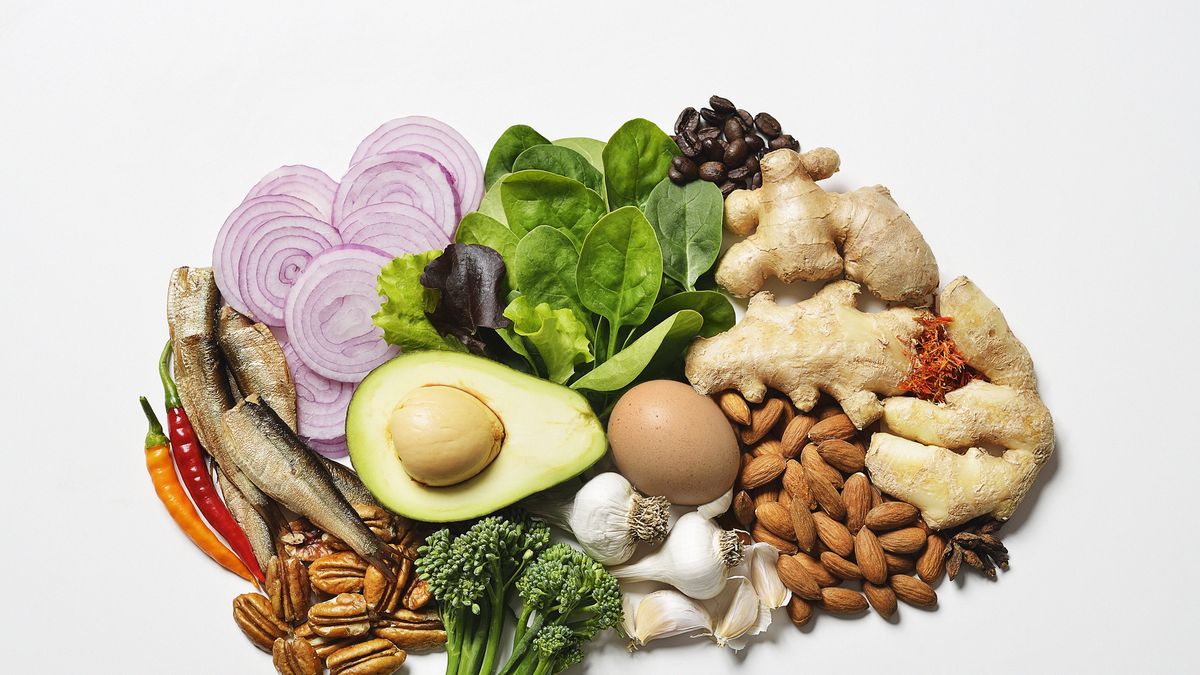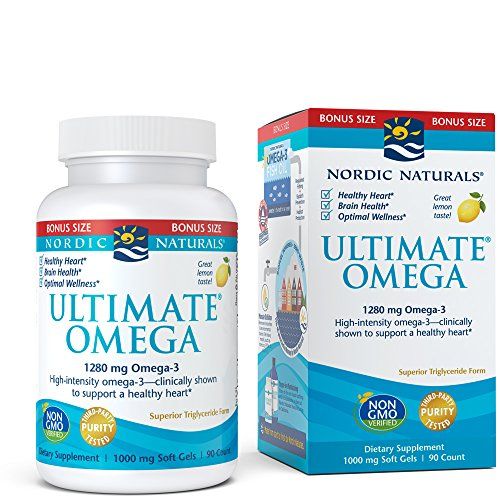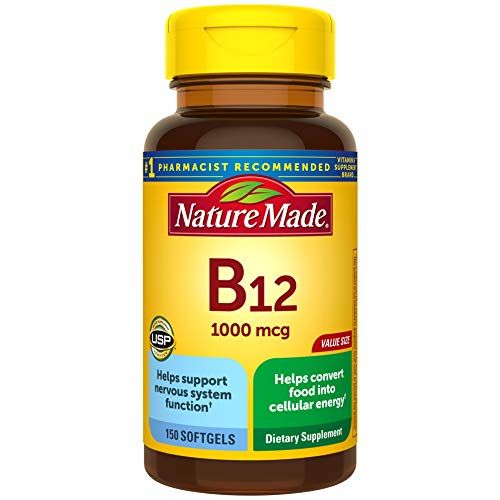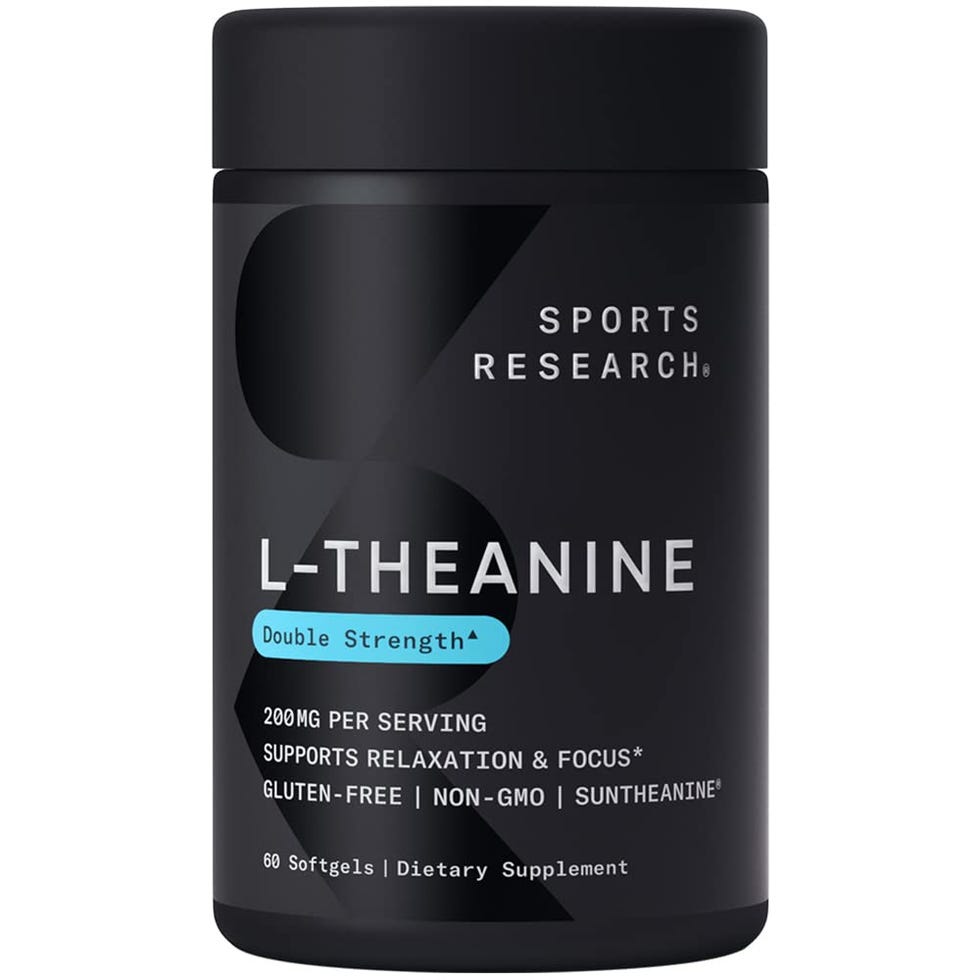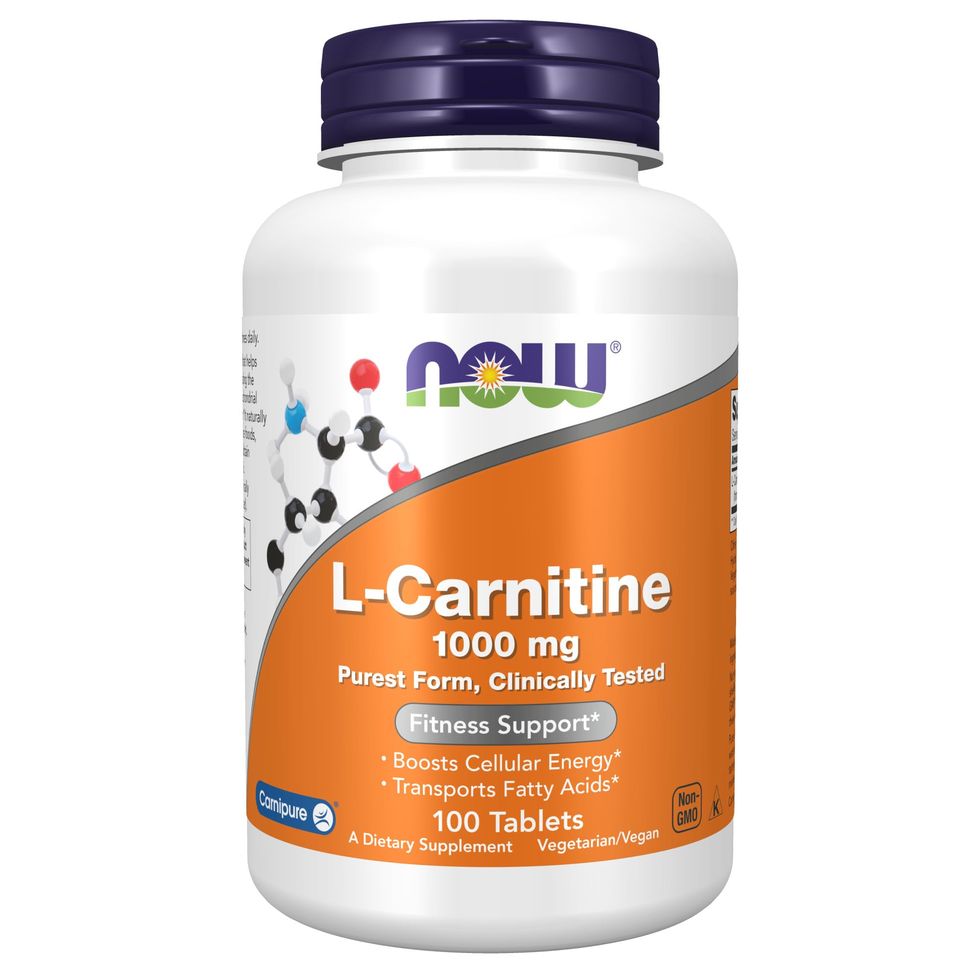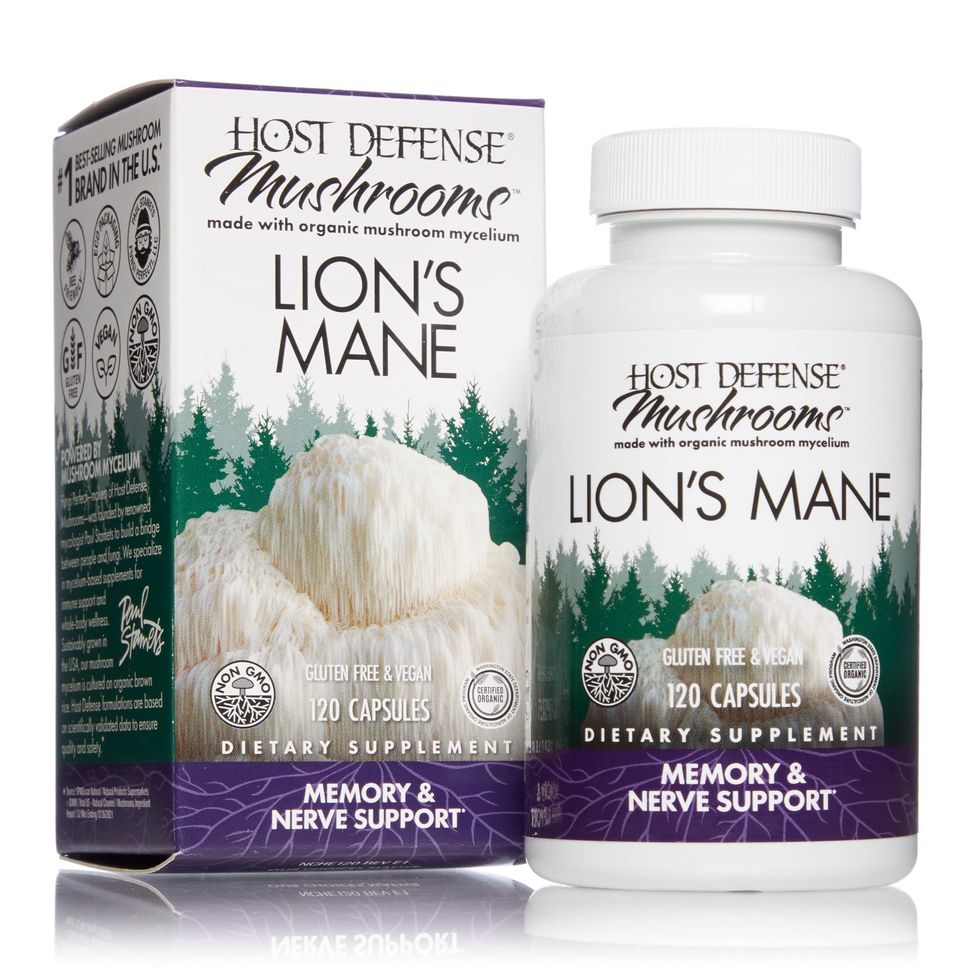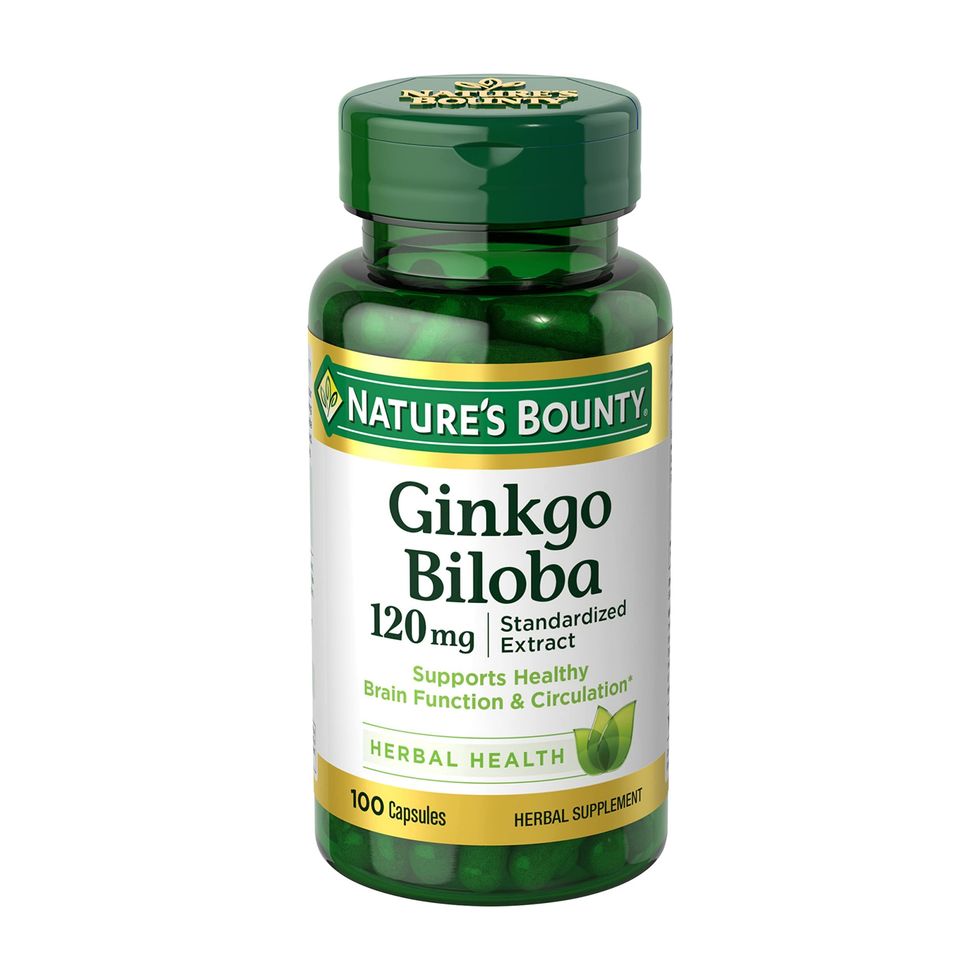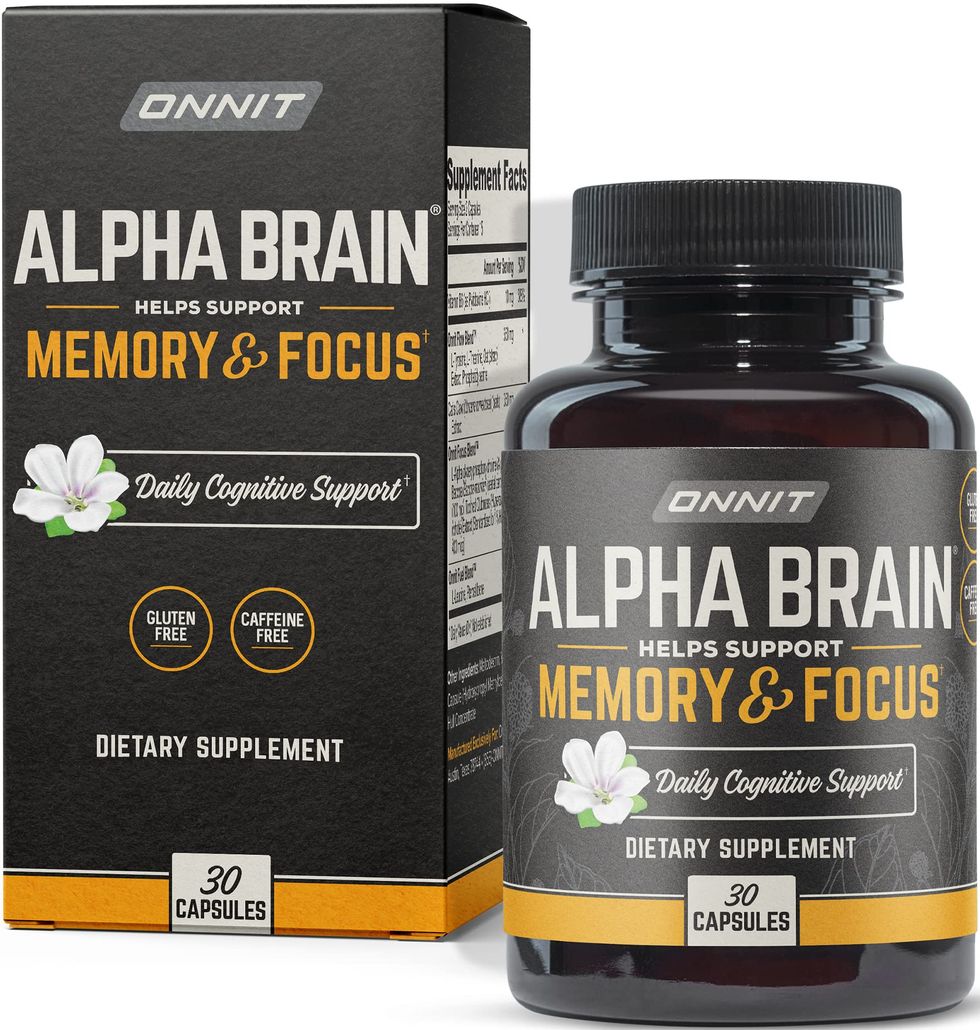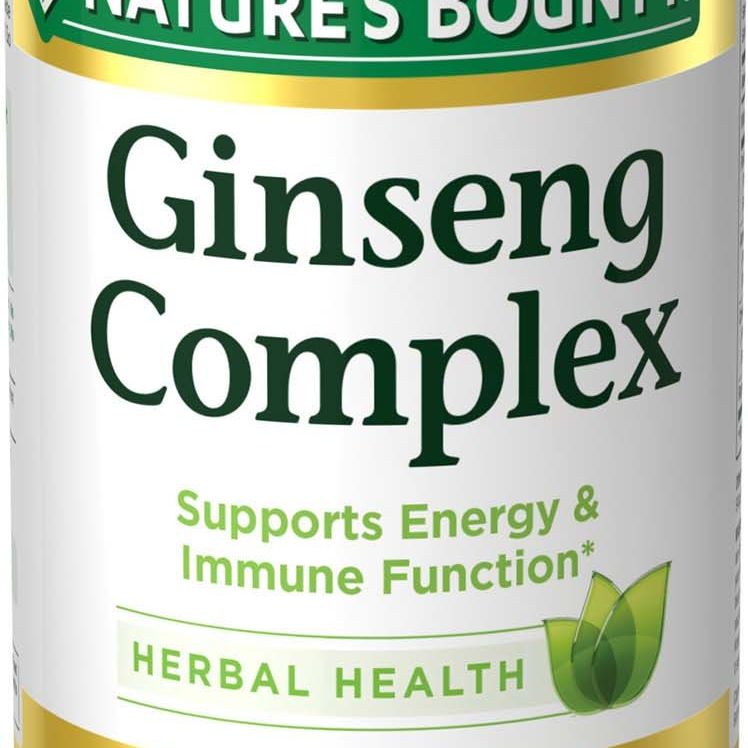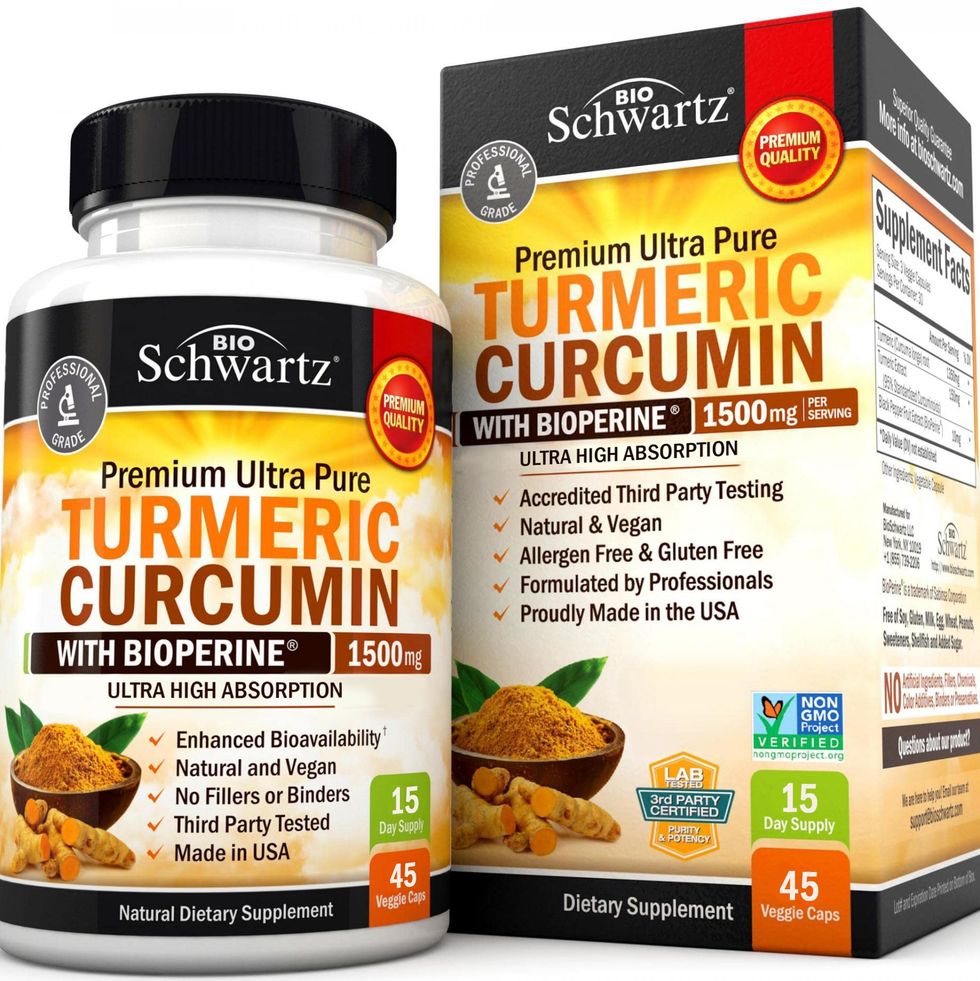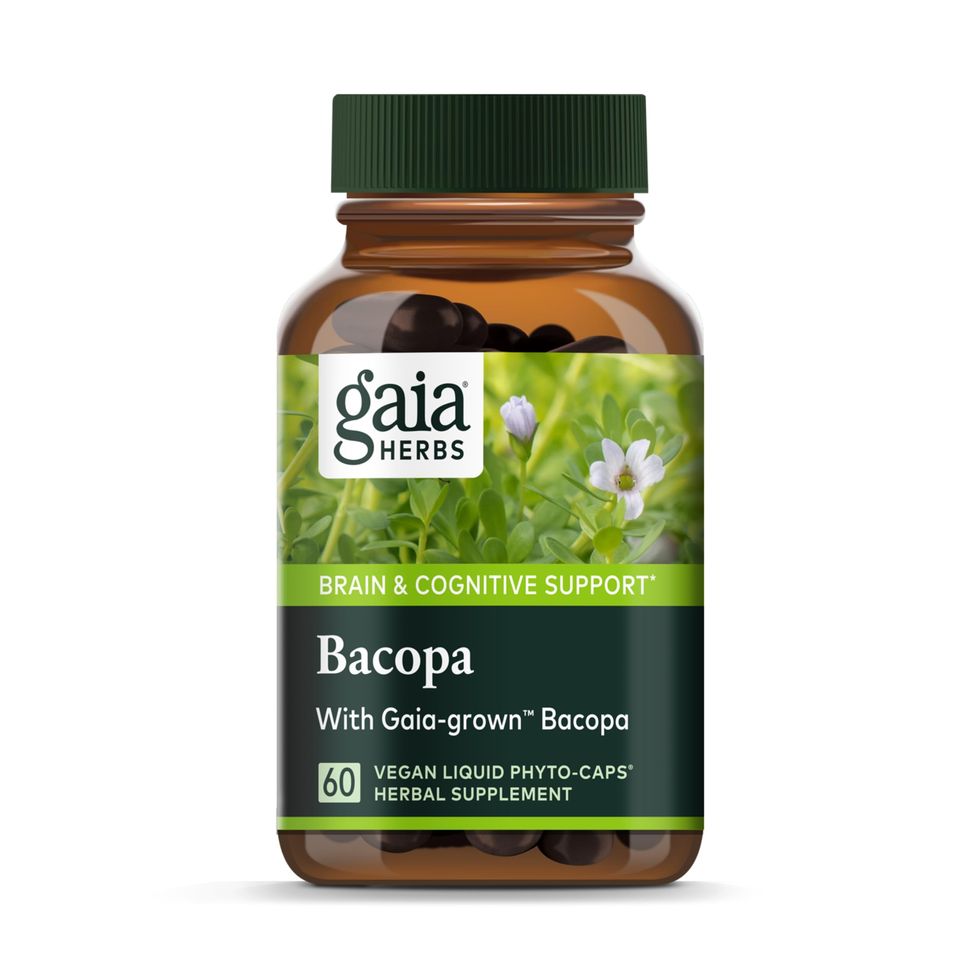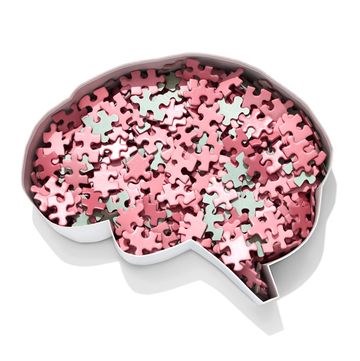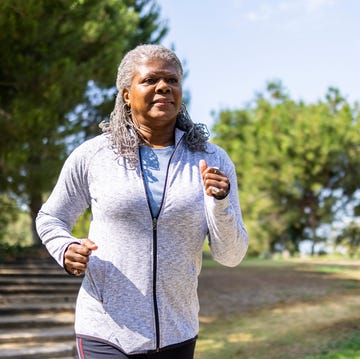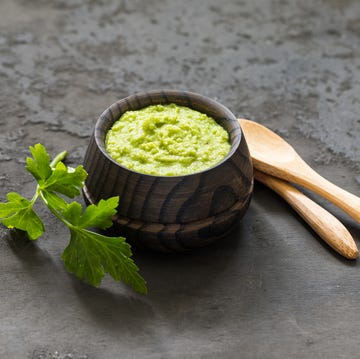When it comes to keeping your brain healthy as you age, your diet plays a big role. Eating a variety of foods is critical to getting the vitamins and nutrients your brain needs to keep performing at its best. But the best vitamins for brain health may help.
Research has found that “certain nutrients, flavonoids, unsaturated fats, and omega-3 fatty acids are associated with slower cognitive decline and reduced risk of dementia,” says Puja Agarwal, Ph.D., a nutritional epidemiologist and assistant professor in the Department of Internal Medicine at Rush Medical College in Chicago.
Meet the Experts: Puja Agarwal, Ph.D., a nutritional epidemiologist and assistant professor in the Department of Internal Medicine at Rush Medical College in Chicago; Mirella Díaz-Santos, P.h.D., an assistant professor in the Mary S Easton Center for Alzheimer’s Disease Research; Robin Foroutan, M.S., R.D.N., a functional dietitian; Gill Livingston, M.D., a professor of psychiatry at University College London.
Although eating whole foods is the best way to get those brain-boosting nutrients. supplements for brain health can be a helpful option in specific circumstances. “In general, supplements aren’t often useful for brain health unless you have a deficiency in certain nutrients, which happens but is rare,” says Gill Livingston, M.D., a professor of psychiatry at University College London whose research focuses on dementia prevention, intervention, and care.
So, which vitamins support brain health? And how can you get more of those essential vitamins into your diet? Ahead, experts share everything you need to know.
Vitamins for brain health
Omega-3 fatty acids
If you’ve ever wondered why fatty fish like salmon and tuna are always touted as part of a healthy diet, here’s one reason: They’re high in omega-3 fatty acids, a type of unsaturated fat that has a brain-protecting anti-inflammatory effect and is a building block of cell membranes in the brain.
Omega-3s have also been linked to lower levels of beta-amyloid, a type of protein found in the brains of people with Alzheimer’s-related damage. “Omega-3 fatty acids easily penetrate the blood-brain barrier and are essential for the brain’s structure and functioning,” explains Dr. Agarwal.
Foroutan adds there has been some research that indicates high doses of omega-3 fatty acids after a concussion or other traumatic brain injury may have protective effects on lasting damage
Where to find it: Besides fatty fish, good sources of omega-3s include nuts and seeds and some fortified foods such as eggs and yogurt. If you’re someone who doesn’t eat seafood often, check with your doctor about taking an omega-3 supplement if bloodwork indicates you’re deficient, says Mirella Díaz-Santos, P.h.D., an assistant professor in the Mary S Easton Center for Alzheimer’s Disease Research at UCLA’s Department of Neurology and Women's Alzheimer's Movement partner.
Vitamin E
This vitamin functions as an antioxidant in the body, and it protects cells from oxidative stress, a type of damage caused by free radicals (unstable molecules in the body), even in the brains of people with Alzheimer’s disease. The brain is particularly susceptible to oxidative stress, which increases during aging and is a major contributor to cognitive decline.
Vitamin E is also anti-inflammatory, which helps to keep DNA healthy and replicating correctly while maintaining the structure of healthy brain cell membranes, says Robin Foroutan, M.S., R.D.N., a functional dietitian.
Where to find it: Vitamin E can be found in dark leafy greens, avocado, red bell pepper, asparagus, mango, pumpkin, and nuts and seeds.
B Vitamins
When it comes to brain health, focus on the three B’s: vitamins B6, B12, and B9 (folate). “These three types of B vitamins are necessary for the brain’s normal functioning,” says Dr. Agarwal, “and any deficiency in them may increase the risk of memory loss and other forms of cognitive decline.”
The reason: These vitamins help boost the production of neurotransmitters, or brain chemicals, that deliver messages between the brain and body.
Increasing your B12 by taking a supplement may also be helpful with memory loss as you age because it’s a very common nutrient for older people to develop a deficiency in, notes Díaz-Santos.
Where to find them: Beans are one of the best sources of B vitamins across the board. You can find B6 in bananas, oranges, papaya, cantaloupe, tuna, salmon, poultry, and dark leafy greens. Folate is found in broccoli, greens, whole grains, eggs, peanuts, and sunflower seeds.
Vitamin B12 is found solely in meat and fish products; for vegans and vegetarians, nutritional yeast and fortified whole grains are a good way to get your supply. People on a plant-based diet do have a much higher risk of a true B12 deficiency, so talk to your doctor or dietitian about whether or not a B12 supplement is right for you.
Vitamin C
This antioxidant is known for its immunity powers, but vitamin C and other flavonoids also support the brain, potentially by taming brain-damaging inflammation.
In one study, by Rush University researchers including Dr. Agarwal, people who consumed vitamin C-rich strawberries at least once a week were less likely to develop Alzheimer’s over the course of the nearly 20-year study period.
Where to find it: Get vitamin C in abundance from kiwi, red and green bell peppers, citrus, berries, broccoli, cauliflower, brussels sprouts, and tomatoes.
Supplements for brain health
There’s a lot of mixed research and feeling among experts when it comes to taking supplements for brain health. Most experts agree it’s always better to spend your money on nutritious foods, but there are exceptions.
Díaz-Santos says that if you’re someone with an allergy or aversion to a large food group (like seafood or dairy) or your doctor found a deficiency during a blood panel, you may want to consider taking a dietary supplement. Otherwise, a well-rounded diet for the average person should be enough.
If you choose to take a supplement for brain health, it’s important to work with a medical or nutrition professional well-versed in supplements, Foroutan suggests. Many of these products have mixed research or fancy advertising that makes promises the capsule can’t keep and supplements are not regulated by the Food and Drug Administration.
If your doctor or dietitian determines that a supplement is right for you, there are high-quality options out there. Look for a seal of approval from a third-party certification program like Consumer Lab, NSF International, or the US Pharmacopeial Convention (USP), which means the product has been tested for quality, purity, and potency—plus that it actually contains the ingredients it claims.
If you do choose to opt for brain-boosting supplements, Foroutan says there are a few categories to consider.
- Supplements that can improve blood flow (like Gingko Biloba).
- Nutrients that support the building blocks of the brain (like Omega-3 fatty acids).
- Nutrients that help the body build neurotransmitters (like L-theanine).
- Longevity nutrients that help reduce the risk of age-related cognitive decline (like B vitamins and vitamin C, D, A, E, and K).
In addition to supplement forms of the nutrients for brain health we’ve already mentioned, a few common supplements for brain health include:
L-theanine
This amino acid helps calm neurotransmitters, which is great for mood and stress. Because stress negatively impacts brain functioning, this can be helpful along with mindfulness techniques to lower stress levels, Foroutan says. Other research suggests the supplement may improve cognitive functioning.
L-carnitine
Research has been mixed, but the mitochondrial nutrient is known for improving cognition and neurotransmitter function, Foroutan says.
Mushrooms
Foroutan says some research suggests certain mushrooms, like Lion’s Maine, Reishi, and Chaga, have been connected to brain health. It’s thought these supplements protect the brain from neurodegeneration and inflammation and may improve attention, focus, mood, memory, and cognition.
Ginkgo Biloba
This funny-sounding supplement has been shown to improve memory, and Foroutan adds it supports healthy blood flow to the brain for even more health perks.
Nootropics
Sometimes called “smart drugs,” nootropics are said to boost mood, increase creativity, and improve brainpower, energy, and focus. There’s no set ingredient that makes a supplement a nootropic other than providing brain-boosting benefits, so Foroutan says only some kinds can help, depending on the ingredients.
Caffeine
Good news, coffee lovers! Research shows that caffeine improves cognitive performance, which makes sense if you’ve ever felt an increased focus after your first sip in the morning. One study observed that caffeine can increase alertness and feelings of well-being, improve concentration and mood, as well as reduce the risk of cognitive decline.
Ginseng
Studies have shown that ginseng can be effective in memory improvement, and directly lower your risk for degenerative brain diseases such as Alzheimer’s disease. The neuroprotective effect of ginseng may be useful in the prevention of depression.
Curcumin
Inflammation and oxidative damage play a role in Alzheimer’s disease, and curcumin has been shown to help with both of these factors. One study also found that this spice improved memory and mood in people with mild, age-related memory loss.
Bacopa
Many clinical studies have demonstrated improvements in verbal learning, delayed word recall, memory acquisition, and anxiety reduction with using Bacopa. Foroutan likes this supplement for brain health because it encourages attention and focus.
Dietary supplements are products intended to supplement the diet. They are not medicines and are not intended to treat, diagnose, mitigate, prevent, or cure diseases. Be cautious about taking dietary supplements if you are pregnant or nursing. Also, be careful about giving supplements to a child, unless recommended by their healthcare provider.
The bottom line
To keep your mind sharp, focus on eating healthy, nutrient-dense foods. And remember: diet is just one piece of the puzzle. Keeping up with other healthy lifestyle habits—like exercising regularly, getting enough sleep, and staying socially active—will go a long way in improving cognitive function and reducing your risk for Alzheimer’s and dementia.
Díaz-Santos adds that you should always be paying attention to your body, and if you think there’s something off, bring it up to your healthcare provider and advocate for yourself.

Alyssa is a senior editor for the Hearst Health Newsroom, where she has written research-backed health content for Prevention, Good Housekeeping and Woman's Day since 2017. She has more than 13 years of reporting and editing experience and previously worked as research chief at Reader’s Digest, where she was responsible for the website's health vertical as well as editing health content for the print magazine. She has also written for Chowhound, HealthiNation.com, Huffington Post and more.

Arielle Weg is the associate editor at Prevention and loves to share her favorite wellness and nutrition obsessions. She previously managed content at The Vitamin Shoppe, and her work has also appeared in Women’s Health, Men’s Health, Cooking Light, MyRecipes, and more. You can usually find her taking an online workout class or making a mess in the kitchen, creating something delicious she found in her cookbook collection or saved on Instagram.
Madeleine, Prevention’s assistant editor, has a history with health writing from her experience as an editorial assistant at WebMD, and from her personal research at university. She graduated from the University of Michigan with a degree in biopsychology, cognition, and neuroscience—and she helps strategize for success across Prevention’s social media platforms.
